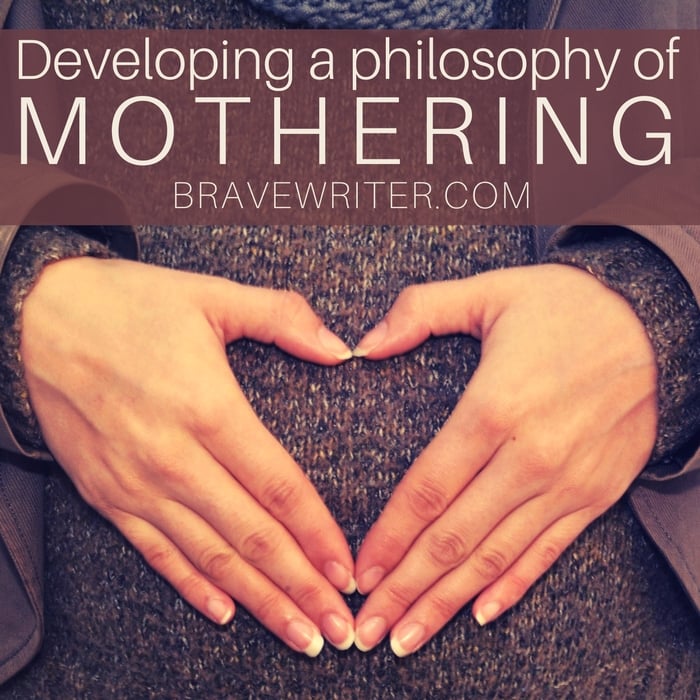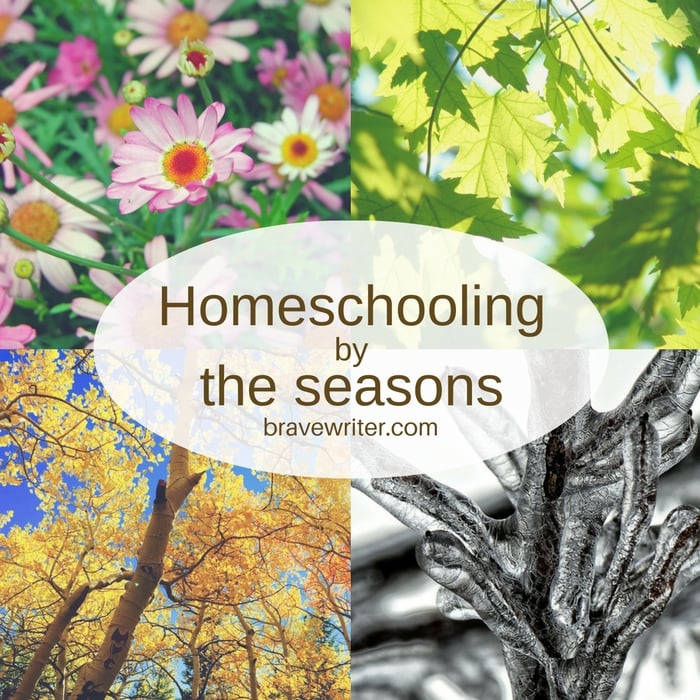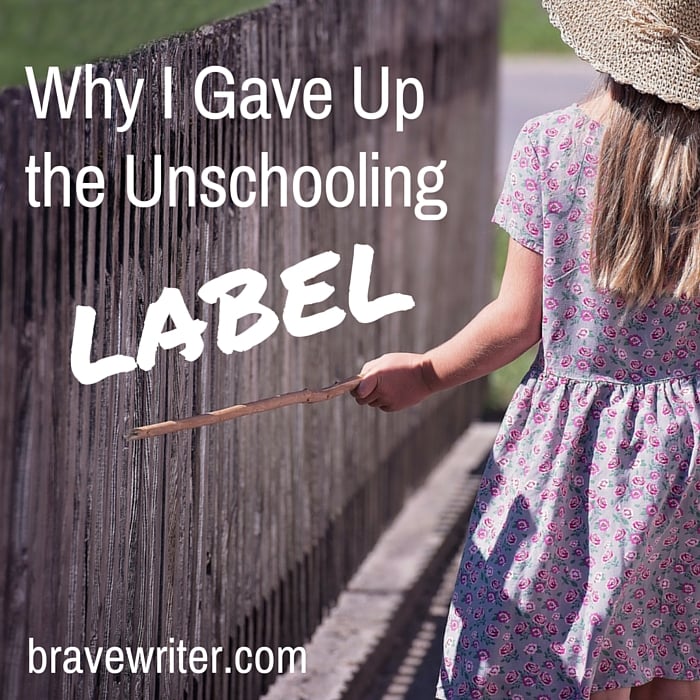
I’ve never received more comments or email than I did for the On Being a Mother entry. I wrote it quickly, without much revision, as a way to affirm to myself the value I felt in being a mom despite all its obvious hardships. That piece drew a lot of support. Loved hearing from all of you.
There were comments and emails too, though, from those who are on the outside looking in, feeling that mothering really is a hardship, that they don’t enjoy the company of their children, and worse, feel guilty about it. Guilt for something you can’t control is the worst feeling you can possibly have. I have no intention ever of adding to anyone’s guilt! Sorry for that unintended side-effect.
I’m all about nurturing ourselves and our kids
through our pain to health and vitality.
That’s the whole Brave Writer modus operandi! Moms who struggle are certainly as invested in their children, love them as much, yet feel they are missing the genetic material to help them have that energy and joy in mothering that they hear about from their friends.
Their experience is a bit like never having had an orgasm and having to hear how great sex is! You feel instantly shut out from the “universally glorious experience” and you can’t imagine what you’d have to do differently to get to that blissful state of being. Believe me, I get it. (More than you know!) All of us have had that “outside-looking-in” feeling in some area of our lives.
In no way do I want to minimize the pain and bewilderment that women feel when they are handed an 8 lb. bundle of limbs and told “Go, therefore, and mother.” The crucible of total responsibility up against very real human limitations drives most of us into an emotional collapse at some point in our children’s lives (and more than once!). That’s why it’s so important to embrace this “more than full-time” job with the expectation that you can find tenderness, connection and love, or you won’t make it! Chronic stress and disappointment in your life is the stuff of which midlife crisis is made.
My goal in the parenting journey is to experience pleasure with my children. In other words (and here, the sex metaphor really is apt!), I’ve deliberately cultivated happiness as the chief aim of parenting. Not discipline. Not character-building. Not training. Not even education. My main concern for my kids and for our family has been to create a happy, peaceful, honest, nurturing, attentive-to-each-person’s-peculiarities environment so that our relationships with each other would be about connection, not about tolerating or managing each other.
It’s my belief that in a space of joy, humor and kindness, education, love, and satisfaction thrive. Relationships become a source of strength and refuge from which to live the rest of our lives rather than an obstacle filled with frustration and pain. I’ve often said, “Joy is the best teacher.” I’d add, “Peaceful relationships are the foundation of a joyful life.”
Lizzy asked in the comments:
I wonder, Julie, what or who it was that helped you develop your perspective. Was it your own mother? Was mothering a dream you’ve had since you were a little girl? Are you one of those folks who has read ‘all the books’ for inspiration?
These are great questions with longer answers than I can do justice to here. But let me tackle it this way. I never thought about having kids (didn’t like babysitting, couldn’t figure out why babies were “cute”). I come by my passion for children through mothering, not through any inherent maternal drive. My mother is incredible, though. She was the one who threw “back-to-school brunch” parties for my friends in 7th grade. She’s the one who patiently typed my essays in high school. She’s the one who has shared her very real self with me and has always listened to my pain without editing it. She’s also the one who lost her marriage to an affair and checked out emotionally for several years of my young adult life. Her deliberate recovery and prioritizing of emotional health has had a huge impact on me as an adult.
I also had the privilege of being mentored in homeschooling by an utterly free spirit of creativity who showed me the value of picnics over math pages, and dress up clothes with face paints at 10:00 in the morning on a Tuesday. As I’ve given myself to mothering and have paid attention to the writing process as it’s worked out in parent-child relationships, I’ve discovered that people thrive when they have space to be who they are, when their pain is taken seriously and when both are addressed with compassion and creativity.
That goes for both moms and kids. If we get too lost in our children, we become withered, unhappy, grouchy adults. If we are too consumed with our adult selves, we lose sight of our kids and overlook their needs for devoted attention.
Between these extremes is an awesome middle ground;
it’s the space where what you do as an adult
can be shared with your children and vice versa!
It’s the space where you tune into your own needs (I have to get out for a haircut or I’ll scream) and also keep an eye on what’s happening with your children (they need naps). If you love Mary Cassatt, you share her paintings with your kids. If they love Wii Dance Revolution, they get you to compete. There’s a give and take that includes touching, eye contact, sharing interests and problem solving. It’s a mutual admiration society that is fed by time together where all members get something from the shared experience.
In other words: joy in mothering is directly related to ensuring that you do things with and for your kids that make you all happy. Really.
























